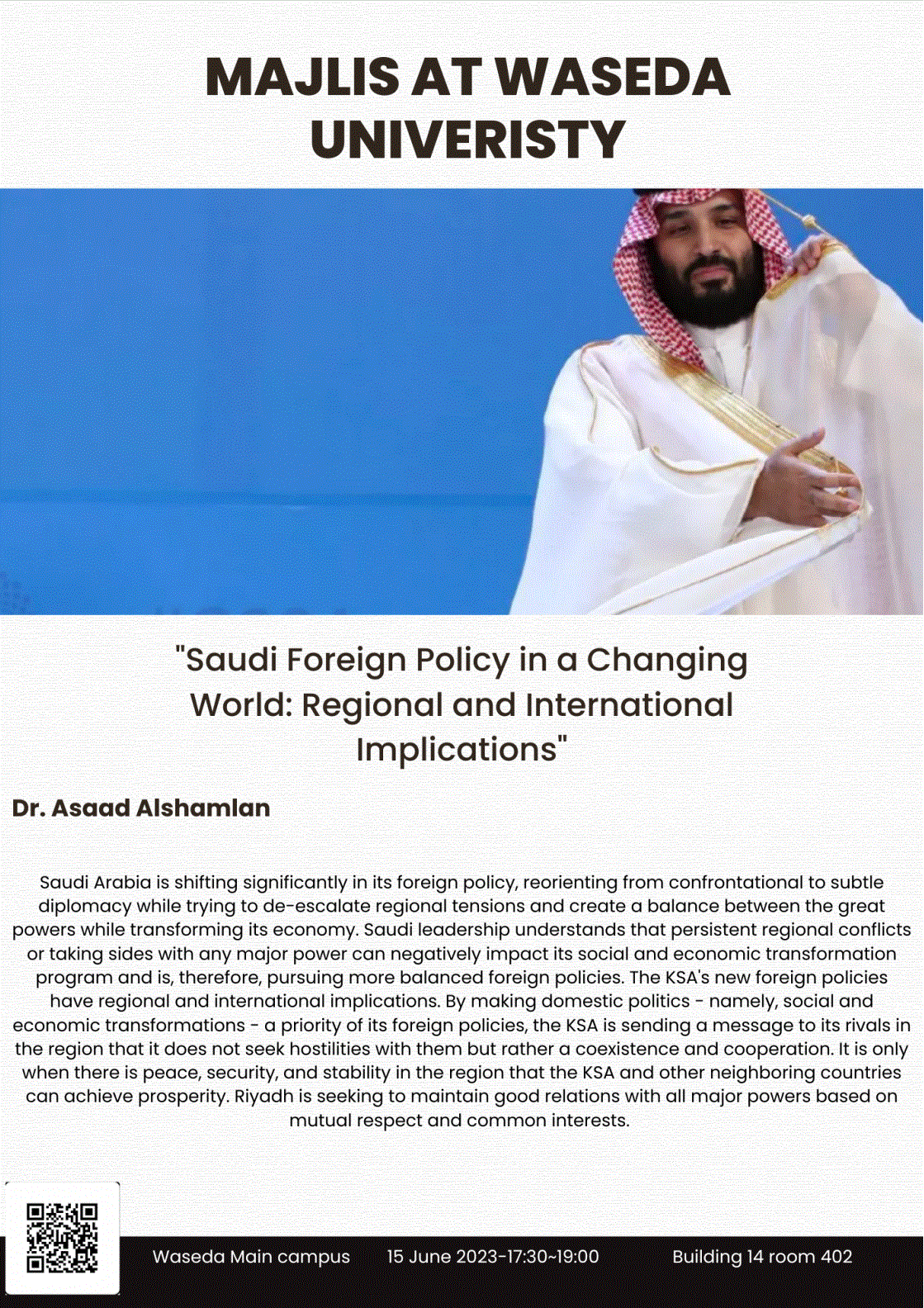Dr. Asaad Alshamlan
Professor of Political Science and Director of the Center for European Studies at Prince Saud Al Faisal Institute for Diplomatic Studies in Riyadh
15/06/2023 5:30 pm
Waseda University, Building 14 Room 402
Saudi Arabia (KSA) is making a significant shift in its foreign policy, reorienting from confrontational to subtle diplomacy while trying to de-escalate regional tensions and create a balance between the great powers while transforming its own economy. Saudi leadershipunderstands that persistent regional conflicts or taking sides with any major power can negatively impact its social and economic transformation programme and is, therefore, pursuing more balanced foreign policies. The KSA’s new foreign policies have regional and international implications. By making domestic politics – namely, socialand economic transformations – as a priority of its foreign policies, the KSA is sending a message to its rivals in the region that it does not seek hostilities with them but rather coexistence and cooperation. It is only when there is peace, security, and stability in the region that the KSA and other neighbouring countries can achieve prosperity. Riyadh is seeking to maintain good relations with all major powers based on mutual respect and common interests.
So, how should we read the new Saudi foreign policy orientation? What are the dimensions of the Chinese brokered Saudi-Iranian agreement on the security and stability of the region? How do we read developments in Saudi-American relations in light of its recent relations with China and Russia? What is the position of the KSA and other Gulf states on the Russian-Ukrainian war? What implications, if any, are there for Japan and Asia? These and other questions will be discussed by Dr. Asaad Alshamlan at Majlis@Waseda on 2023/6/15.
Dr. Asaad Alshamlan is a Professor of Political Science and Director of the Center for European Studies at Prince Saud Al Faisal Institute for Diplomatic Studies in Riyadh. He worked (among other things) as a political consultant for the General Secretariat of the Gulf Cooperation Council (GCC) from 2012-2014. His teaching, research and publications relate to Gulf security, Saudi-Americanrelations, Saudi-British relations, GCC-EU relations, Saudi-Russian relations, Saudi-Chinese relations, Political Islam, Foreign Policy Analysis, contemporary theories of international politics, The Concept of The Political, and Post-Structuralist approaches in political analysis. He holds a BA(Honors) from Carleton University-Canada, and MA. and Ph.D. in Political Science from the University of Essex-UK.
With the true spirit of a Majlis you are all most welcome to join but to enable us to judge and manage numbers we kindly request you to book by filling in the registration form.
*Please be informed that this event will be conducted as an in-person gathering.





